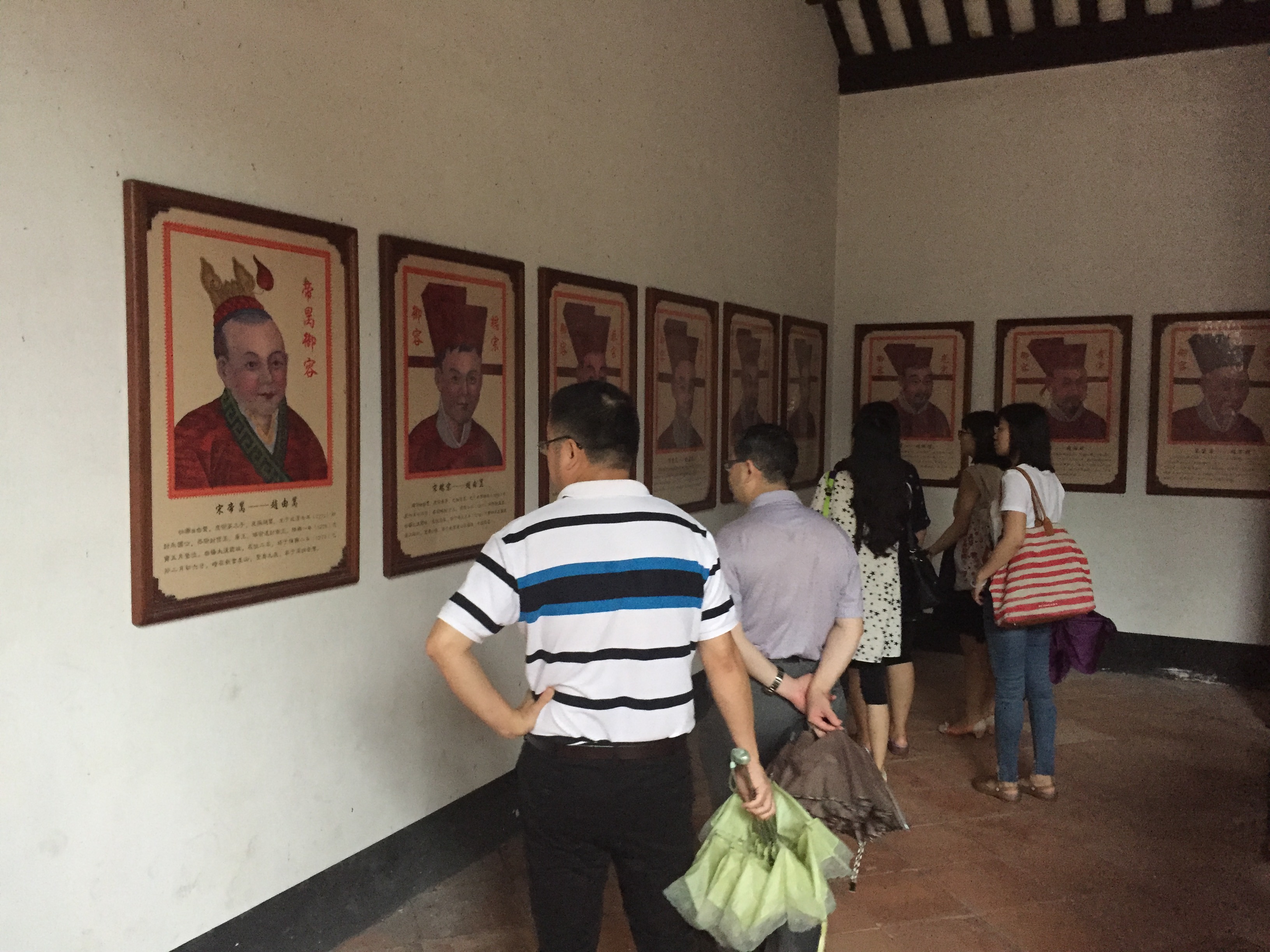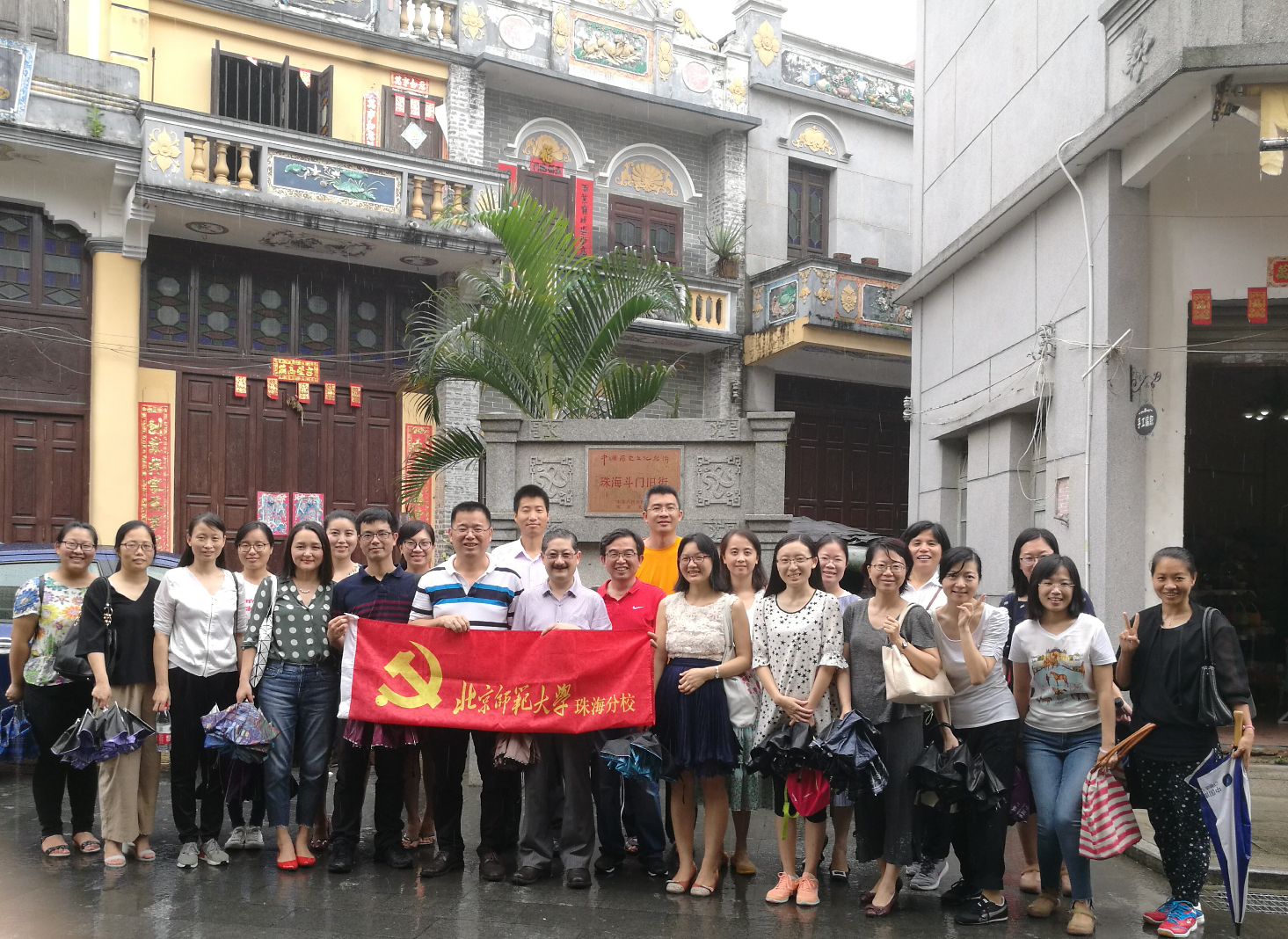不动产学院党总支与外国语学院党总支联合对珠海古村落文化保护、新农村建...
6月18日,由不动产学院党总支与外国语学院党总支联合组成“两学一做”专题考察团,对珠海市古村落文化保护、新农村建设工作进行了专题考察。本活动由外国语学院党总支书记陶文好教授和不动产学院党总支书记黄伟教授带队,两院20余名教师党员参加。
首先,考察团前往获得“中国十大最美乡村”荣誉称号的南门村,分别考察了南宋文化遗存赵氏祖祠菉猗堂和既有中国传统特色又融入西洋风格的古村落民居代表接霞庄。陶文好教授指出,南宋末年的溃败之势非常重要的原因在于缺乏斗志和信心。回顾党章,中国共产党的成长史,就是一部艰苦奋斗和斗志昂扬的历史。作为党员应该时刻保持斗志,迎接挑战和困难,在困难面前勇于担当,做好党员的模范带头作用。

随后,考察团参观了斗门古街,老师们通过现场参观、与当地居民交流,了解斗门古街的保护和开发现状,就旧城更新问题、传统建筑文化保护与功能更新等话题展开热烈讨论。
最后,考察团参观了村企合作模式下的新农村建设成果,莲江村和十里莲江项目。对十里莲江的业态构成、运营模式、与莲江村的协调关系等方面的建设成果进行了实地走访。
在活动总结过程中,陶文好书记和黄伟书记共同指出,随着不动产业态国际化发展需求,与国际行业接轨,是我校落实应用型人才培养的重要载体。外国语学院拥有多语种的语言优势,不动产学院有广阔的具有全球视野不动产应用型人才培养需求,两院可以有效整合资源,在特色课程体系、学术研究、人才培养方面有序开展合作,不仅能有效践行两院国际化人才培养理念,也可以促进学院教学科研发展实现共赢。两院领导就上述提议达成一致,将安排具体人员分步落实.
On June the 18th, in order to fulfill the spirit of “studies on theoretical and practical issues of party building”, a delegation made up of members from general branch of CPC of both the School of Real Estate and the School of Foreign Languages, had an investigation on cultural protection of ancient villages in Zhuhai as well as new countryside construction, which was led by Professor Tao Wenhao and Professor Huang Wei, the Secretary of CPC Branch from both schools, and more than 20 teachers with party membership participated.
First, the delegation went to Nanmen Village, with the honorary title of “China’s 10 most beautiful villages”, examining Lu Yi Hall, the ancestral hall of the Zhao family, which dated back to the Southern Song Dynasty and Jiexia Village, a representative of Chinese ancient village with a combination of both Chinese characteristics and western styles. Professor Tao Wenhao pointed out that one of the crucial reasons for the downfall of Southern Song Dynasty was lack of morale and confidence. Reviewing the Party charter, the history of the communist party of China has been a history of hard struggle and high spirit. As a party member, everyone should always keep the fighting spirit, meet the challenges and difficulties, be brave in the face of obstacles and take the leading role of party members.
Next, the delegation visited the old street in Doumen. Through site visiting and communicating with local residents, teachers gradually understood the status-quo of the protection and development of Doumen old street. A heated discussion on issues such as old city renewal, traditional architectural culture conservation and fuction renewal, as well as other related topics had been conducted.
Finally, the delegation witnessed the new countryside construction achievements operated in the village-enterprise cooperation mode, such as Lianjiang Village and the 5000-meter Lianjiang Project, whose industry structure, operation mode, and coordination relationship with the village were investigated on spot.
In the end of this activity, Professor Tao Wenhao and Professor Huang Wei jointly pointed out that with the demand of internationalization of the real estate industry, being in line with international standard was an important carrier for the implementation of application-oriented talent cultivation of the university. Since the School of Foreign Languages has advantages in multilingualism while the School of Real Estate has high demand for application-oriented talents with a global view, the two schools can effectively integrate resources and cooperate in an orderly manner in featured curriculum system, academic research and talent training. In this way, not only was the internationalized talent training concept of the two schools effectively carried out, but also teaching and research development was boosted. Therefore, a win-win situation can be achieved. Deans of both schools agreed on the proposal and would arrange specific staff to put theory into practice step by step.


